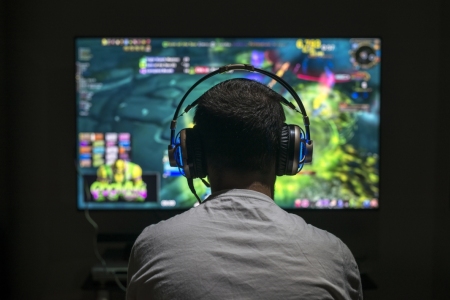As many of parents with kids of all ages know, the obsessive features of screen time and modern video games would come as no surprise. I often have to remind myself that my relationship with my screen, be it a phone/tablet/computer, is part of what my children are learning from my example. And so it is imperative that I have a healthy relationship with my screen as we will be together a long time, and my child’s relationship with their screen will be even longer! So let’s start a conversation about the addictive characteristics of gaming (and social media usage). Here are the criteria to be aware of as outlined by the American Psychiatric Association (APA):
- Preoccupation with gaming.
- Withdrawal symptoms when gaming is taken away or not possible (sadness, anxiety, irritability).
- Tolerance—the need to spend more time gaming to satisfy the urge.
- Inability to reduce playing, unsuccessful attempts to quit gaming.
- Giving up other activities, loss of interest in previously enjoyed activities due to gaming.
- Continuing to game despite problems.
- Deceiving family members or others about the amount of time spent on gaming.
- The use of gaming to relieve negative moods, such as guilt or hopelessness and to escape from struggle in peer or social settings.
- Risk, having jeopardized or lost a job or relationship due to gaming.
The APA has published a guideline for parents to promote healthy technology use for children and their recommendations, which can be found here. Highlights for me will always go back to having a healthy relationship with self and others first; screens and media after. Consider screens not being allowed in the bedroom and not before bedtime. Reduce, replace and reset as often as needed in a day. Look at resources such as https://www.commonsensemedia.org, http://esrb.org, and books by Nicholas Kardaras: Glow Kids and Catherine Steiner-Adaim The Big Disconnect.
As always, further consultation is always available.

